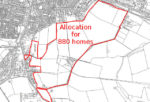Hayley shares this latest news on behalf of the NSPCC. Ed
Almost two thirds of parents are unaware that back and forth interaction with their child from birth can help their babies’ social, emotional and cognitive development.
A survey of more than 2,000 parents and expectant parents, including 271 who live in the South East, revealed that 62% were unaware that the interactions they have with their new baby in moments such as playing, singing or story time can be brain building ones.
‘Look, Say, Sing, Play’
The NSPCC has launched a new campaign, ‘Look, Say, Sing, Play’, which aims to show parents why taking a cue from their young child and reacting to what they’re doing is so important.
Research has shown that when an infant babbles, gestures or cries and an adult responds positively with eye contact, words or a hug, neural connections are built and strengthened in the child’s brain.
Supporting parents to have these really attentive interactions with their babies can also help to prevent abuse and neglect happening as the child grows older.
Bringing everyday moments into focus
The NSPCC campaign seeks to build on the interaction parents are already having with their child, bringing everyday moments into focus and showing how they offer the chance to engage with their baby, with tips on how they can easily fit them into their day.
Parents are encouraged to take a look at what their baby is focusing on and how they react, say what they are doing and copy the sounds their baby makes, sing along to their favourite tune or play simple games and see what their baby enjoys.
Motherwell: Campaign provides new and simple ideas
Emma Motherwell, NSPCC Campaigns Manager for the Isle of Wight, said:
“You don’t have to change your routine to have brain-building moments with your baby. Whether it’s bath-time, bed-time or you’re popping to the shops, there are always moments when you can look, talk, sing and play with your baby.
“We know parents interact with their children all the time, but there’s a real opportunity for them to do it more consciously and give them the best start in life.
“We hope the ‘Look, Say, Sing, Play’ campaign will resonate with parents and expectant parents and provide some new and simple ideas to help them with vital early year engagement.”
Sign up for weekly tips
NSPCC research has found some parents struggle with ideas about how to interact with their young child beyond eye contact and cuddling, especially in the early months when they do not receive obvious feedback from their babies.
To get weekly tips, parents can sign up to an email from the charity via the campaign page on the NSPCC Website. Each one will include a fun, age-appropriate tip which they can easily fit in to their daily routine.
Barlow: Building on current evidence
Jane Barlow, President of The Association for Infant Mental Health (AIMH UK), said:
“This campaign builds on current evidence about the importance of interactions between parents/carers and their babies, highlighting the benefits for the rapidly developing architecture of the baby’s brain and their capacity for emotional regulation.
“These are key aspects of development that promote children’s social, emotional, behavioural and cognitive functioning thereby giving them the best start in life.”
To help with this the NSPCC is working with Vroom, a US public health initiative from the Bezos Foundation which has thousands of brain building tips created and tested by behavioural scientists.
The NSPCC has also created a campaign video with tips for parents.
Image: Alyssa Stevenson under CC BY 2.0





